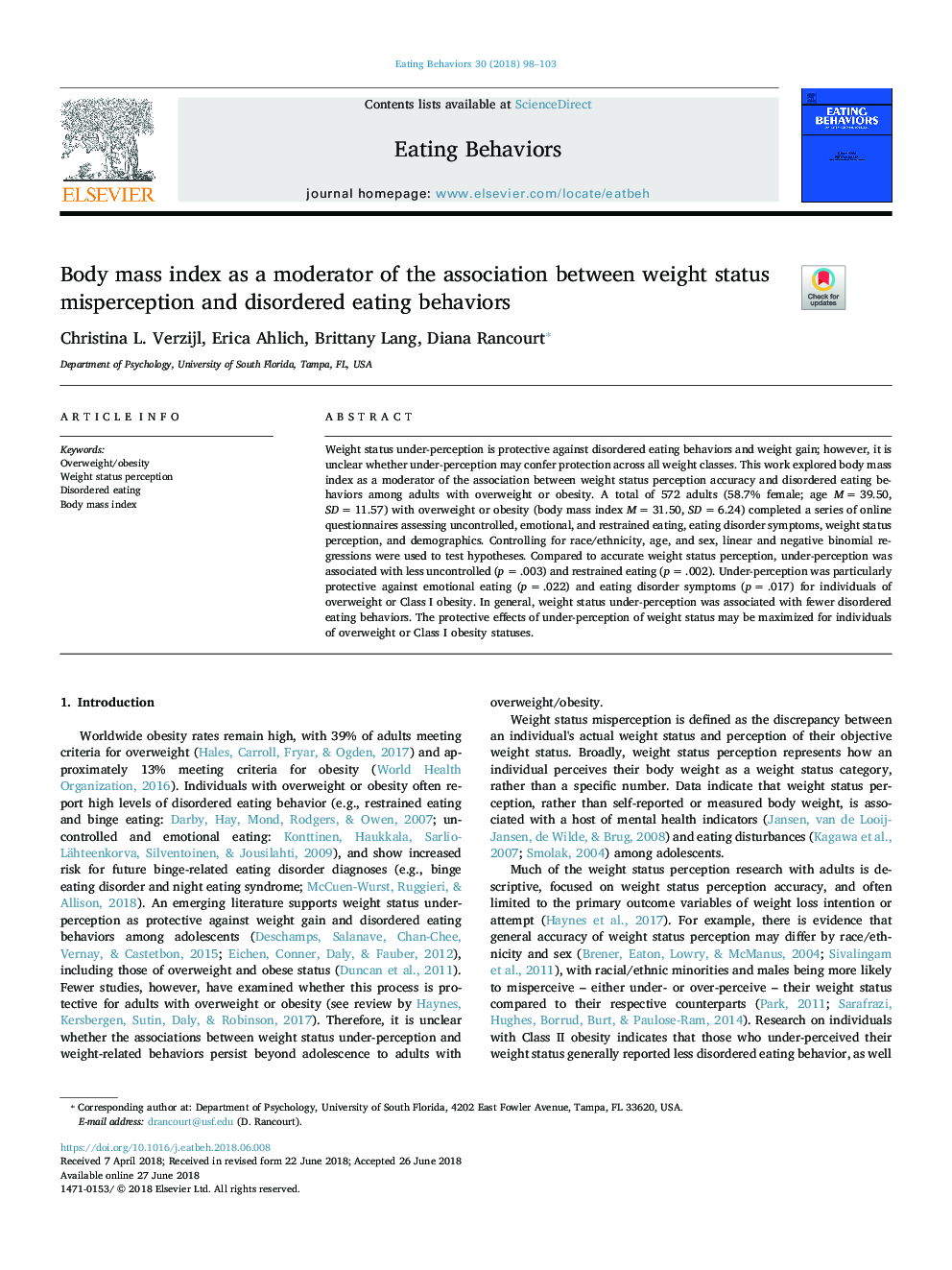| Article ID | Journal | Published Year | Pages | File Type |
|---|---|---|---|---|
| 7264907 | Eating Behaviors | 2018 | 6 Pages |
Abstract
Weight status under-perception is protective against disordered eating behaviors and weight gain; however, it is unclear whether under-perception may confer protection across all weight classes. This work explored body mass index as a moderator of the association between weight status perception accuracy and disordered eating behaviors among adults with overweight or obesity. A total of 572 adults (58.7% female; age Mâ¯=â¯39.50, SDâ¯=â¯11.57) with overweight or obesity (body mass index Mâ¯=â¯31.50, SDâ¯=â¯6.24) completed a series of online questionnaires assessing uncontrolled, emotional, and restrained eating, eating disorder symptoms, weight status perception, and demographics. Controlling for race/ethnicity, age, and sex, linear and negative binomial regressions were used to test hypotheses. Compared to accurate weight status perception, under-perception was associated with less uncontrolled (pâ¯=â¯.003) and restrained eating (pâ¯=â¯.002). Under-perception was particularly protective against emotional eating (pâ¯=â¯.022) and eating disorder symptoms (pâ¯=â¯.017) for individuals of overweight or Class I obesity. In general, weight status under-perception was associated with fewer disordered eating behaviors. The protective effects of under-perception of weight status may be maximized for individuals of overweight or Class I obesity statuses.
Related Topics
Life Sciences
Neuroscience
Behavioral Neuroscience
Authors
Christina L. Verzijl, Erica Ahlich, Brittany Lang, Diana Rancourt,
